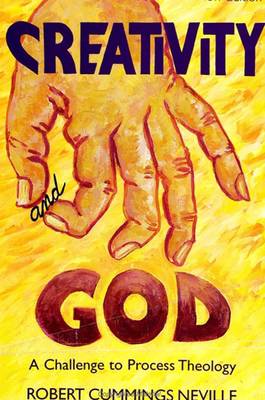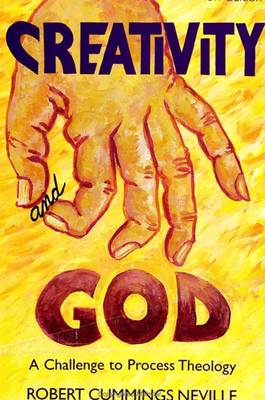
- Retrait gratuit dans votre magasin Club
- 7.000.000 titres dans notre catalogue
- Payer en toute sécurité
- Toujours un magasin près de chez vous
- Retrait gratuit dans votre magasin Club
- 7.000.0000 titres dans notre catalogue
- Payer en toute sécurité
- Toujours un magasin près de chez vous
Description
A sympathetic critique of process theology with responses to the arguments addressed by leading thinkers.
Creativity and God is a sympathetic criticism of process theology. Neville shows that process thought is deeply mistaken to distinguish as it does so sharply between creativity and God and thus falls into both metaphysical and religious difficulties. Metaphysically, it cannot give an adequate account of temporality in God, and Lewis Ford's attempt to do so is analyzed here; nor can it give an account of eternity in God, and Charles Hartshorne's efforts are analyzed.
Schubert Ogden has argued that a process neo-classical conception of God is both philosophically superior to alternatives and adequate for representing the religious dimensions of human experience, and Neville argues in detail that this is not so. Charles Winquist has argued that process theology can be made compatible with transcendental theology and its contemporary heirs, and Neville argues that this diminishes the contributions of both sides. John Cobb Jr. has pioneered in the use of process theology for establishing dialogues with East Asian religions, but Neville warns against the biases in its categories. Where process theology seeks to preserve both divine benevolence and human freedom by separating God's creativity from that in human individuals, Neville argues that this makes God unworthy of worship and the human heart empty of the divine. Whereas process theologians look on Neville's theology of divine creation ex nihilo of everything determinate as a peculiar kind of mystical atheism, Neville argues that process theology makes God just another cosmological object, not God at all. Creativity and God joins these issues.
Spécifications
Parties prenantes
- Auteur(s) :
- Editeur:
Contenu
- Nombre de pages :
- 163
- Langue:
- Anglais
Caractéristiques
- EAN:
- 9780791428221
- Date de parution :
- 19-10-95
- Format:
- Livre broché
- Format numérique:
- Trade paperback (VS)
- Dimensions :
- 149 mm x 227 mm
- Poids :
- 272 g

Les avis
Nous publions uniquement les avis qui respectent les conditions requises. Consultez nos conditions pour les avis.






